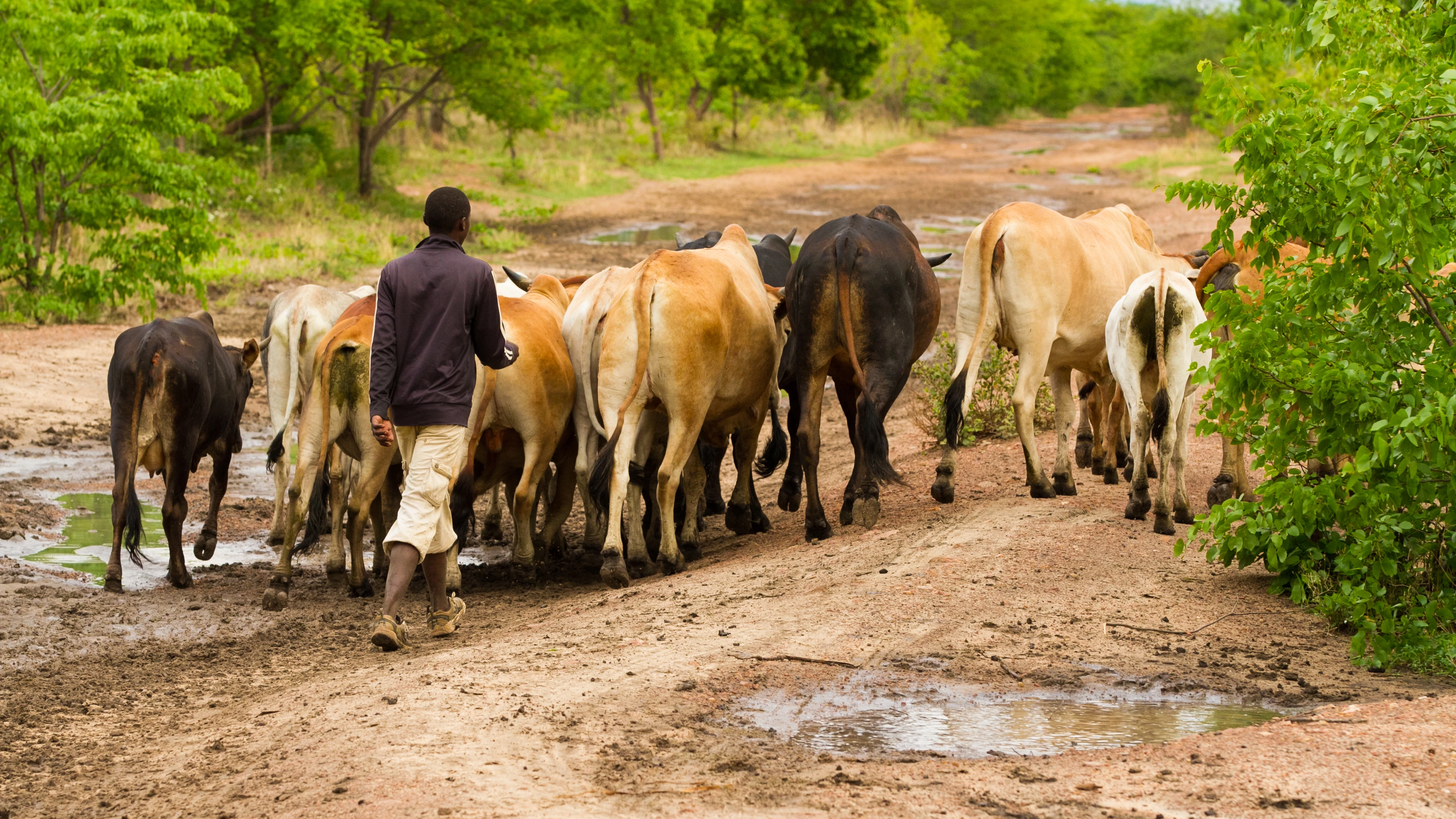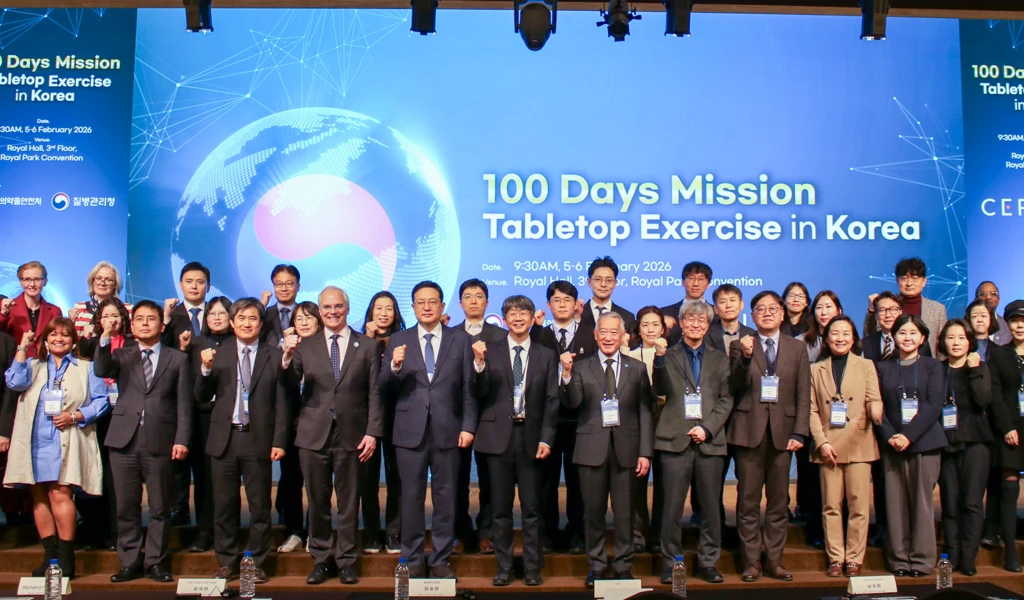CEPI partners with University of California, Davis to advance a vaccine against potentially deadly Rift Valley fever virus into clinical trials

CEPI to invest $28.5 million, with support from the EU, in UC Davis-led clinical trials of a Rift Valley fever (RVF) vaccine in Tanzania, a country at high-risk of outbreaks of the disease.
Potentially deadly mosquito-borne virus causes great damage to lives and livelihoods, primarily in rural communities in low- and middle-income countries across Africa and beyond.
As climate change expands the range of potential RVF outbreaks, trials will meet urgent need for vaccine development progress.
14 September 2023, OSLO Norway and DAVIS, California: Human trials of a novel vaccine against the potentially deadly Rift Valley fever virus (RVF) are to take place in Tanzania — a country where the mosquito-borne disease poses a significant threat to the lives and livelihoods of people in rural communities. The Coalition for Epidemic Preparedness Innovations (CEPI) will provide funding of up to US$28.5 million, with support from the European Union's Horizon Europe programme, to fund a research team led by the One Health Institute in the School of Veterinary Medicine at University of California, Davis (UC Davis) to conduct Phase I and Phase II trials of a novel RVF vaccine candidate.
The studies will be amongst the first CEPI-funded trials to be conducted in a region where RVF is endemic, and will assess the safety and immunogenicity of UC Davis' live-attenuated RVF vaccine, known as DDVax, in people most at risk of RVF infection. The Phase I trial is planned to begin in 2024, subject to regulatory and ethical approvals. DDvax is currently being evaluated in preclinical studies funded by CEPI and the EU under a previous agreement with Colorado State University, UC Davis and partners.
In addition to clinical trials in Tanzania, CEPI will fund technology transfer of assays and samples to laboratories in Tanzania, and regulatory engagement to plan a pathway to licensure for the vaccine. The consortium will also carry out comprehensive One Health-oriented epidemiological studies designed to generate valuable scientific knowledge about the sources and drivers of RVF outbreaks, thereby contributing to outbreak prediction and management and guiding late-stage vaccine development planning.
Rift Valley fever: a climate-driven disease with epidemic potential
RVF is a potentially deadly virus which can spread to people either through mosquito bites or through contact with infected livestock. The disease can cause severe symptoms such as encephalitis and hemorrhaging, and kills around 1 percent of all those it infects. RVF is also profoundly destructive for the livelihoods of those in rural areas where outbreaks occur and often results in large-scale losses of livestock.
Because of its impact on both people and animals, RVF is a prime candidate for a ‘One Health' approach to disease control. No safe and effective human vaccines or treatments have yet been approved for use against RVF, so their development is considered a top priority by both the Africa CDC and the World Health Organization's R&D Blueprint team.
RVF was first identified in Kenya's Rift Valley, but in recent decades has steadily extended its reach across much of Africa and parts of the Middle East, putting more people in more countries at risk of infection. Outbreaks of RVF have been consistently linked with intense periods of rainfall and flooding - including those caused by the El Niño phenomenon which has recently returned after a seven year absence. Heavy rains provide ideal conditions for RVF-infected mosquitoes to breed and hatch. As climate change persists, expanding the range of mosquitoes and increasing the likelihood of extreme weather events such as flooding, there is a risk that RVF outbreaks will become more frequent and widespread making the development of a protective human vaccine all the more urgent.
Dr Richard Hatchett, CEO of CEPI, said: "Despite the devastating impact that Rift Valley fever can inflict on the lives and livelihoods of vulnerable communities, no licensed vaccines are available to prevent the disease. Climate change is making weather patterns ever more volatile, increasing the risk of more frequent and widespread outbreaks of this potentially deadly virus, and making the development of safe and effective vaccines more urgent than ever before. Through this partnership, CEPI and EU funding will support UC Davis and its partners to advance this promising vaccine candidate into clinical trials in an endemic country, generating crucial data in the population most likely to benefit from its protection in the future."
Marc Lemaître, Director-General for Research and Innovation, European Commission, said: "With the memories of the recent pandemic still fresh in our minds, we know how important it is to invest in research to prevent and control the threat from infectious diseases. An effective vaccine against Rift Valley Fever would go a long way to prevent more frequent and deadly outbreaks, with all the serious public health and socioeconomic consequences that we see today. I am pleased to see that this essential research project can now take off with the steadfast support of the European Union and Horizon Europe, through our great collaboration with CEPI. The EU and its Member States have been among the largest contributors to CEPI since its inception. From the EU Framework Programmes for Research and Innovation, we have provided more than EUR 240 million since 2017 and we are proud of the great scientific progress the strong partnership with CEPI has produced on Ebola, Chikungunya, Rift Valley fever, and COVID-19 so far. I am confident that the project starting today will bring us even closer to an effective vaccine against Rift Valley Fever."
Dr Brian Bird, Project Director, UC Davis One Health Institute, said: "A One Health approach to vaccination and community-based risk reduction activities is essential to control Rift Valley fever. We are tremendously excited to work with CEPI and our partners to evaluate the safety and immunogenicity of DDVax in clinical trials in Tanzania, and to understand the underlying epidemiology of this deadly zoonotic disease. Working together as a multi-disciplinary team we can improve the lives of people, animals, and communities across the world."
Dr Ally Olotu, Head, Department of Interventions & Clinical Trials, Ifakara Health Institute, said: "Rift Valley fever virus has periodically caused severe outbreaks in Tanzania and across Africa, impacting people's health, their livestock, and socio-economic outcomes. An effective vaccine for humans would be a game changer for public health. The Ifakara Health Institute is delighted to partner with UC Davis and CEPI to evaluate the DDVax candidate, and work to understand the dynamics of RVF transmission to inform vaccine deployment in the future."
This funding is being awarded under a CEPI Call for Proposals designed to support RVF vaccine candidates through clinical trials in endemic areas, which is supported by EUR35m provided by the European Union's Horizon Europe programme.
Enabling equitable access to RVF vaccines
RVF primarily impacts rural and pastoral communities living in low- and middle-income countries in East Africa. CEPI and the UC Davis-led consortium are committed to enabling equitable access to RVF vaccines to the populations who need them, in line with CEPI's Equitable Access Policy. This includes planning for the potential development of investigational stockpiles for use in outbreak situations, agreeing to an affordable pricing mechanism such as Cost of Goods +%, and endeavouring to manufacture the vaccines at geographically dispersed manufacturing sites close to where outbreaks may occur in order to minimise supply risks. In addition, the clinical trial and epidemiological data generated by this projects will be published open access to benefit the broader public health and research communities.
—ENDS—
Notes to Editors
UC Davis-led consortium partners
UC Davis is leading a consortium comprising the Ifakara Health Institute, University of Pittsburgh, Colorado State University and IQVIA.
About CEPI
CEPI is an innovative partnership between public, private, philanthropic, and civil organizations, launched in 2017, to develop vaccines against future epidemics. Its mission is to accelerate the development of vaccines and other biologic countermeasures against epidemic and pandemic threats so they can be accessible to all people in need.
Prior to COVID-19, CEPI's work focused on developing vaccines against Ebola virus, Lassa virus, Middle East Respiratory Syndrome coronavirus, Nipah virus, Rift Valley Fever virus and Chikungunya virus — it has over 20 vaccine candidates against these pathogens in development. CEPI has also invested in new platform technologies for rapid vaccine development against unknown pathogens (Disease X).
CEPI has played a central role in the global response to COVID-19, supporting the development of the world's largest portfolio of vaccines against SARS-CoV-2 and its variants with a focus on speed, scale and access, as well as co-leading COVAX, the global initiative to deliver fair and equitable access to COVID-19 vaccines. CEPI is also the world's leading funder of R&D for broadly protective coronavirus vaccines which could protect against future variants of COVID-19 as well as other coronaviruses with epidemic and pandemic potential.
CEPI has embarked upon an ambitious US$3.5bn five-year plan — called CEPI 2.0 — to dramatically reduce or even eliminate the future risk of pandemics and epidemics. Central to the plan is CEPI's goal — supported by the G7 and G20 — to compress the time taken to develop safe, effective, globally accessible vaccines against new threats to just 100 days. Achieving this ‘100 Days Mission' would give the world a fighting chance of containing a future outbreak before it spreads to become a global pandemic. Read the plan at endpandemics.cepi.net/
Follow our news page for the latest updates. Follow us @CEPIvaccines, @DrRHatchett, and LinkedIn.
About UC Davis
The top-ranked UC Davis School of Veterinary Medicine is home of the One Health Institute and is uniquely positioned to address global health concerns at the intersection of animal, human and planetary health as part of the University of California, Davis. The UC Davis Health Clinical Science and Translation Center — Clinical Trials Office provides deep expertise in human clinical trials and will enhance the close collaboration among veterinary and human researchers and clinicians needed during the project. UC Davis is the most comprehensive campus in the University of California system, with four colleges and six professional schools that offer 107 undergraduate majors and 101 graduate and professional degrees. UC Davis enrolls about 39,000 students from more than 110 countries, contributes at least $12 billion to the California economy each year, and in 2021-22, secured over $1 billion in research funding.
Media contacts
CEPI
E: [email protected]
T: +44 7387 055214
UC Davis
Dr. Brian Bird, E: [email protected]
Trina Wood, UC Davis SVM Communications; E: [email protected]


.webp)